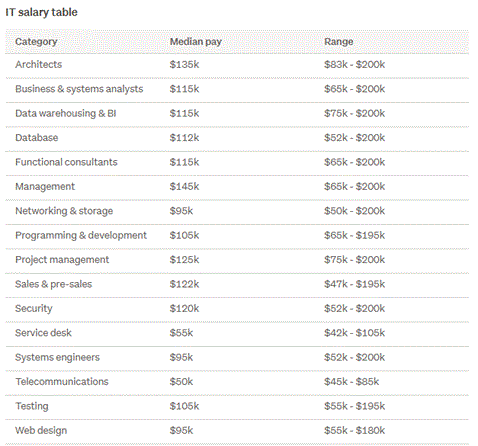2011英语六级考试语法辅导:现在完成时
2011四六级
★ 英语六级考试写作提高必备10大功能句型
★ 2011六级考试听力对话一般性解题原则
★ 2011英语六级考试单词边练边记
★ 应对四六级考试写作词汇量不足3大措施
2010四六级
★ 2010年12月大学英语四级考试答案汇总
★ 2010年12月大学英语六级考试答案汇总
★ 名师解析2010年12月大学英语四级考试
★ 名师点评2010年12月六级 2大显著变化

2011四六级VIP全程班:早准备 早通关
3、现在完成时
(1)构成:现在完成时由助动词have + 过去分词构成,助动词have 有人称和数的变化。第三人称单数用has,其余用have.
现在完成时的否定式直接在助动词后面加上not、疑问式是把助动词提到主语之前。以study 为例,其否定式、疑问式和简单回答形式如下:
否定式 | 疑问式 |
I have not (haven’t) studied…. | Have I studied…? |
You have not (haven’t) studied…. | Have you studied…? |
He has not (hasn’t) studied…. | Has he studied…? |
否定疑问式 | 简单回答(肯定/否定) |
Have I not (Haven’t i) studied…? | Yes, you have. No, you haven’t. |
Have you not (Haven’t you) studied…? | Yes, I have. No, I haven’t. |
Has he not (Hasn’t he) studied…? | Yes, he has. No, he hasn’t. |
(2)用法:
1)现在完成时通常表示在说话之前已经完成的动作或存在的状态。说话人强调的是该动作或状态对现在的结果或影响。而一般过去时也表示动作已经完成,但强调的是过去发生了某一动作这样一个事实。有的同学觉得这种说法比较难以理解,因为任何过去的动作对现在都有影响,很难判断用一般过去时或现在完成时。事实上,这种说法没有把现在完成时与一般过去时的根本区别说清楚。如果没有说明动作发生的具体时间,则一般用现在完成时;如果说明了动作发生的具体时间,带有表示过去的时间状语,则用一般过去时。例如:
My daughter has just gone out. 我女儿刚出去。
I’m sure we’ve met before. 我肯定我们以前见过面。
She has arrived. 她到了。
2)表示持续到现在的动作或状态,往往和包括现在在内的表示一段时间的状语连用,如today, these days, recently, now, lately, for…, since…, in the last/past two weeks/years/days/months, just 等。如:
I haven’t heard from her these days. 这些日子我没有收到她的信。
We haven’t seen you recently. 最近我们没有见到你。
They have been away for two years. 他们离开已经两年了。
She has been with us since Monday.
她从星期一就一直和我们在一起。
注意:
1)表示短暂意义的动词如open, go, come, die, arrive, leave, lose, fall等,在完成时当中不能和包括现在在内的表示一段时间的状语连用,因为它们表示的动作不可能持续。因此,不能说:
×He has come here for 2 weeks.
×The old man has died for 4 months.
×They have left only for 5 minutes.
以上三句话可以改为:
It’s two weeks since he came here. He has been here for 2 weeks.
It’s 4 months since the old man died.
They have been away only for 5 minutes
2)have (has) been 和have (has) gone的区别:表示“曾到过某地”要用 “have (has) been”; 表示“已经去某地”要用 “have (has) gone”。试比较:
Where has he been? 他刚才到哪里去了?(已经回来了)
Where has he gone? 他上哪儿去了?(人不在)
They have been to Canada. 他们到过加拿大。(现在已经不在加拿大)
They have gone to Canada. 他们到加拿大去了。(可能在路上和已经到加拿大).
3)现在完成时不能和明确指出时间的状语,如yesterday, last year, in 1976, two days ago, just now, when I came in 等连用, 但可以和不明确指出时间的状语,如already, yet, sometimes, always, often, before, lately, recently, once, twice, ever, never等连用。例如:
She has already come. 她已经来了。
I haven’t read it yet. 我还没读过这个。
I have met him before. 我从前曾见过他。
Ma Hong has always been a good student. 马红一直是个好学生。
I have often seen him in the street. 我经常在街上看见他。
They have never been to Yan’an. 他们从未去过延安。
I haven't seen him lately. 我近来没看到他。
翻译练习:
1)他们已经答复了我们的信。
They have already answered our letter.
2)自去年以来我就未遇见过王英。
I haven’t met Wang Ying since last year.
3)他刚把他的名字告诉我。
He has just told me his name.
4)你到过杭州吗? 到过。我一个月以前去过那里。我去过两三次。
Have you ever been to Hangzhou? Yes, I have. I went there a month ago. I have been there two or three times.
5)他在海外住了很长时间了。
He has lived abroad for a very long time.

最后冲刺:名师团在线指导12月四六级备考
四级历年真题(2001-2009)
2001年1月 | 2001年6月 | 2002年1月 | 2002年6月 | 2003年1月 |
2003年6月 | 2003年9月 | 2004年1月 | 2004年6月 | 2005年1月 |
2005年6月 | 2005年12月 | 2006年6月 | 2006年12月 | 2007年6月 |
2007年12月 | 2008年6月 | 2008年12月 | 2009年6月 | 2009年12月 |
六级历年真题(2001-2009)
2001年1月 | 2001年6月 | 2002年1月 | 2002年6月 | 2003年1月 |
2003年6月 | 2003年9月 | 2004年1月 | 2004年6月 | 2005年1月 |
2005年6月 | 2005年12月 | 2006年6月 | 2006年12月 | 2007年6月 |
2007年12月 | 2008年6月 | 2008年12月 | 2009年6月 | 2009年12月 |
- 相关阅读
TOPS
- 日排行/
- 周排行/
- 原创
- 日排行/
- 周排行/
- 原创
- 1 无锡学院2022年6月英语六级准考证打印入口|时间:6月1日
- 2 2022年6月英语四级作文热门话题及范文:教育不公平
- 3 泰州学院2022年6月英语六级准考证打印入口|时间:6月1日
- 4 吉林四级考试时间2022年上半年
- 5 2022年6月英语四级作文热门话题及范文:网络游戏
- 6 宿迁学院2022年6月英语六级准考证打印入口|时间:6月1日
- 7 2022年6月英语四级作文热门话题及范文:电力短缺
- 8 苏州城市学院2022年6月英语六级准考证打印入口|时间:6月1日
- 9 2022年6月英语四级作文热门话题及范文:手机的利弊
- 10 常熟理工学院2022年6月英语六级准考证打印入口|时间:6月1日







